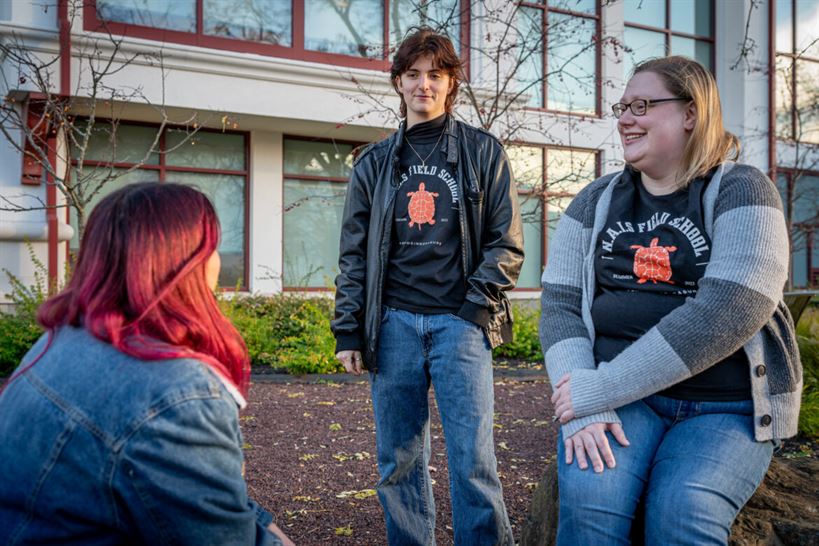In understanding the history of New Jersey and the United States, one would be remiss not to acknowledge the background and contributions of native and Indigenous people.
In the 2022-2023 academic year, Montclair State University introduced the Native American and Indigenous Studies (NAIS) minor to those interested in tackling the US legacy of racial injustice and settler colonialism. This semester now introduces the Native and Indigenous Studies Club, which has embodied the minor as a more accessible and less demanding entry point for those interested in such studies.
Farrah Fornarotto, the club’s founder and president, is a senior anthropology major with three minors focusing on native indigenous studies and archaeology. Their interest in fighting for Indigenous rights expanded beyond the classroom and forged the club’s beginnings.
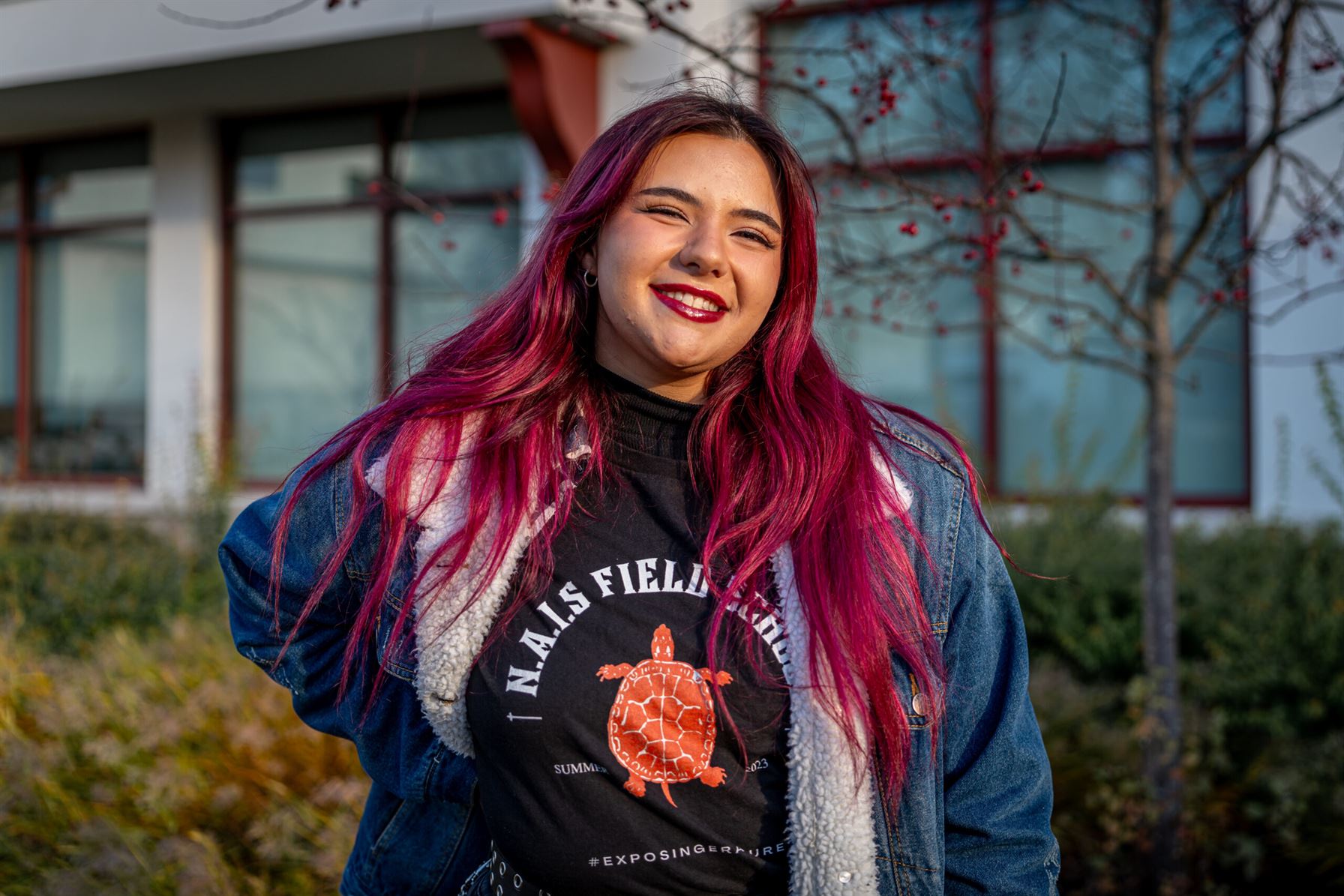
Farrah Fornarotto, the club’s founder and president, has done much work within the community to help grow the club.
Karsten Englander | The Montclarion
With the help of the university’s funding and research, Fornarotto was able to dive into local communities, make connections and transform their work with people into a student-run club.
“I think as students we hold a lot of power with our voices, so by holding a student organization, coming out [and] showing our support for our local communities, that says a lot more than just doing the required work for your major or minor,” said Fornarotto.
The primary focuses of the club include food sovereignty and environmental justice, which are topics explored in the minor, and are often executed through volunteer trips. Within a few months of activity, the club had conversations with Chief Vincent Mann of the Ramapough Lenape Turtle Clan and language revitalization experts through relations with the university.
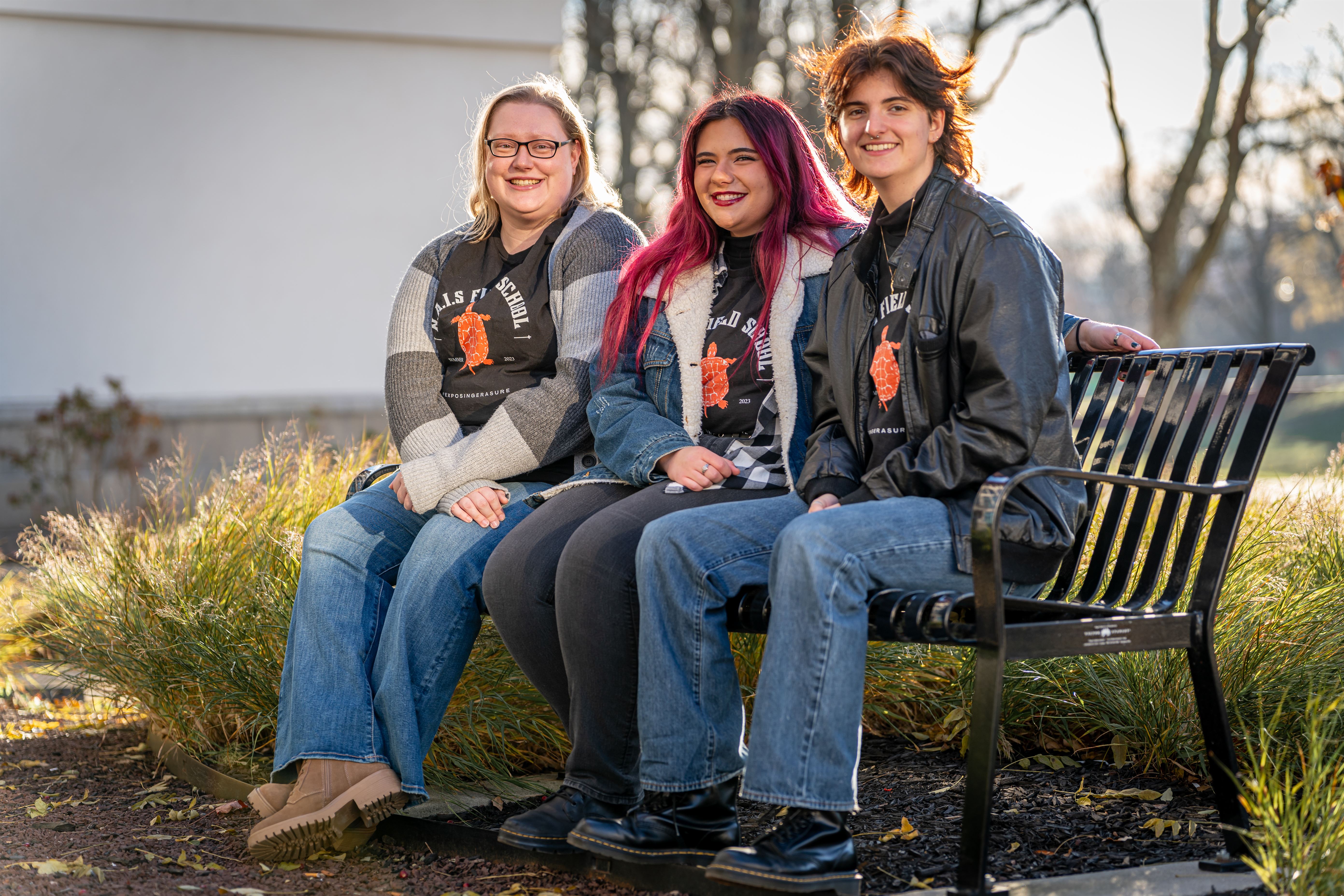
The Native American and Indigenous Studies club (NAIS) was started to involve students outside the NAIS major who were interested in Indigenous studies.
Karsten Englander | The Montclarion
The head of Montclair State’s anthropology department, Dr. Christopher N. Matthews, had met Mann about seven years prior, back when the minor was only an idea. His current research is partly focused on a collaborative heritage project with the Ramapough Lenape Turtle Clan. These long-standing relationships with local tribes help the club and professors facilitate similar events and cultivate those interested.
The club’s vice-president is A.J. Gervasi Humenik, a junior anthropology major, who was introduced to Indigenous studies through these trips. As someone who is not in the minor sequence, he recommends jumping into the club by attending meetings and having an open ear for learning.
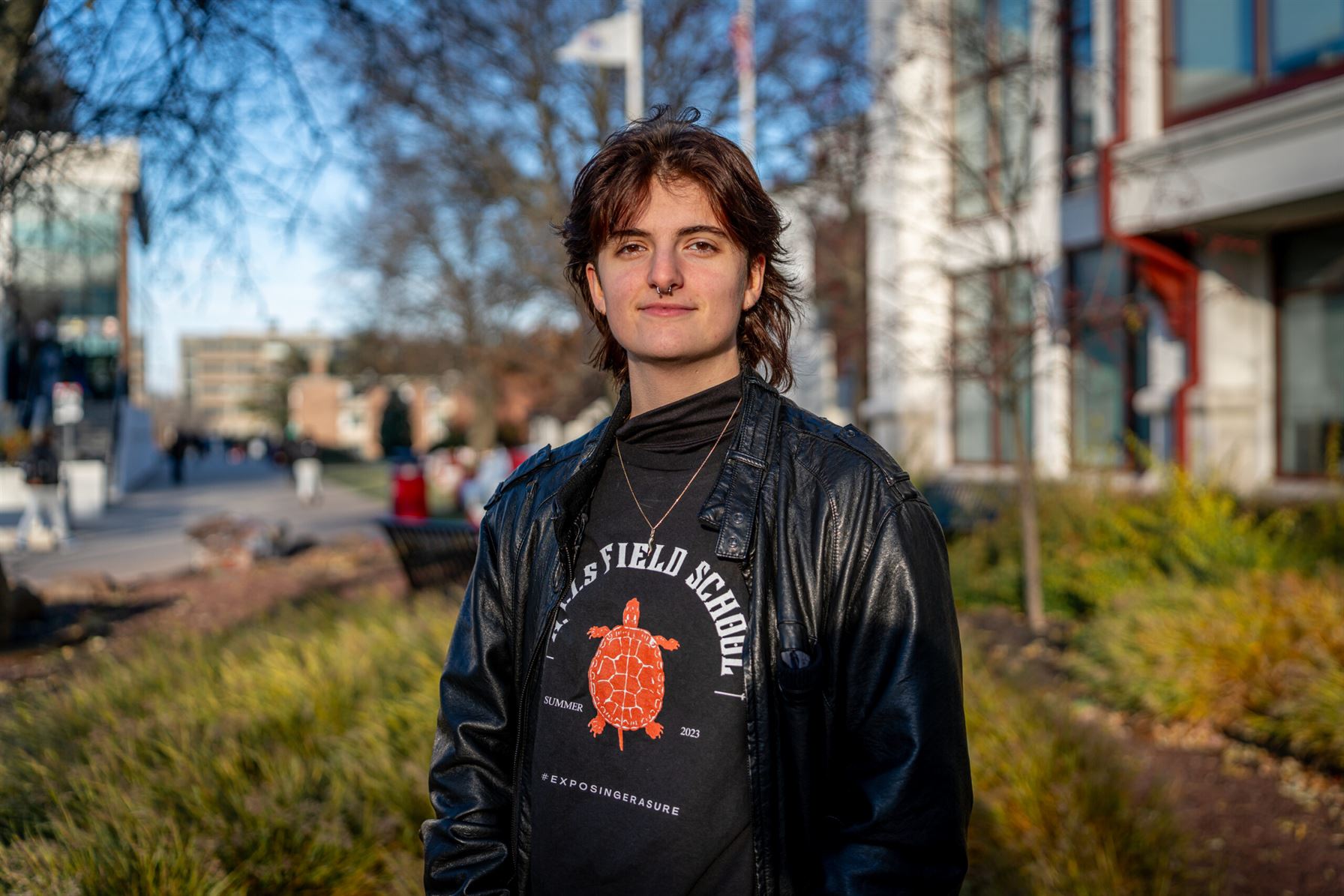
A.J. Gervasi Humenik, the club's vice president, says that the goal of the club is to strengthen Indigenous voices.
Karsten Englander | The Montclarion
“We’re not asking you to come in and be perfect, and to know all the terminology, and to know all the issues and the history of the issues,” Humenik said. “If you just come and want to learn that’s really just enough.”
Kate Kilroy, a junior anthropology major, is the club’s treasurer. She got involved in the NAIS club through her interests in archaeology museums and NAGPRA, the Native American Grave Protection and Repatriation Act. Kilroy found that Indigenous rights are often violated against this act, creating great ills that are perpetrated in museums with thousands of stolen artifacts.
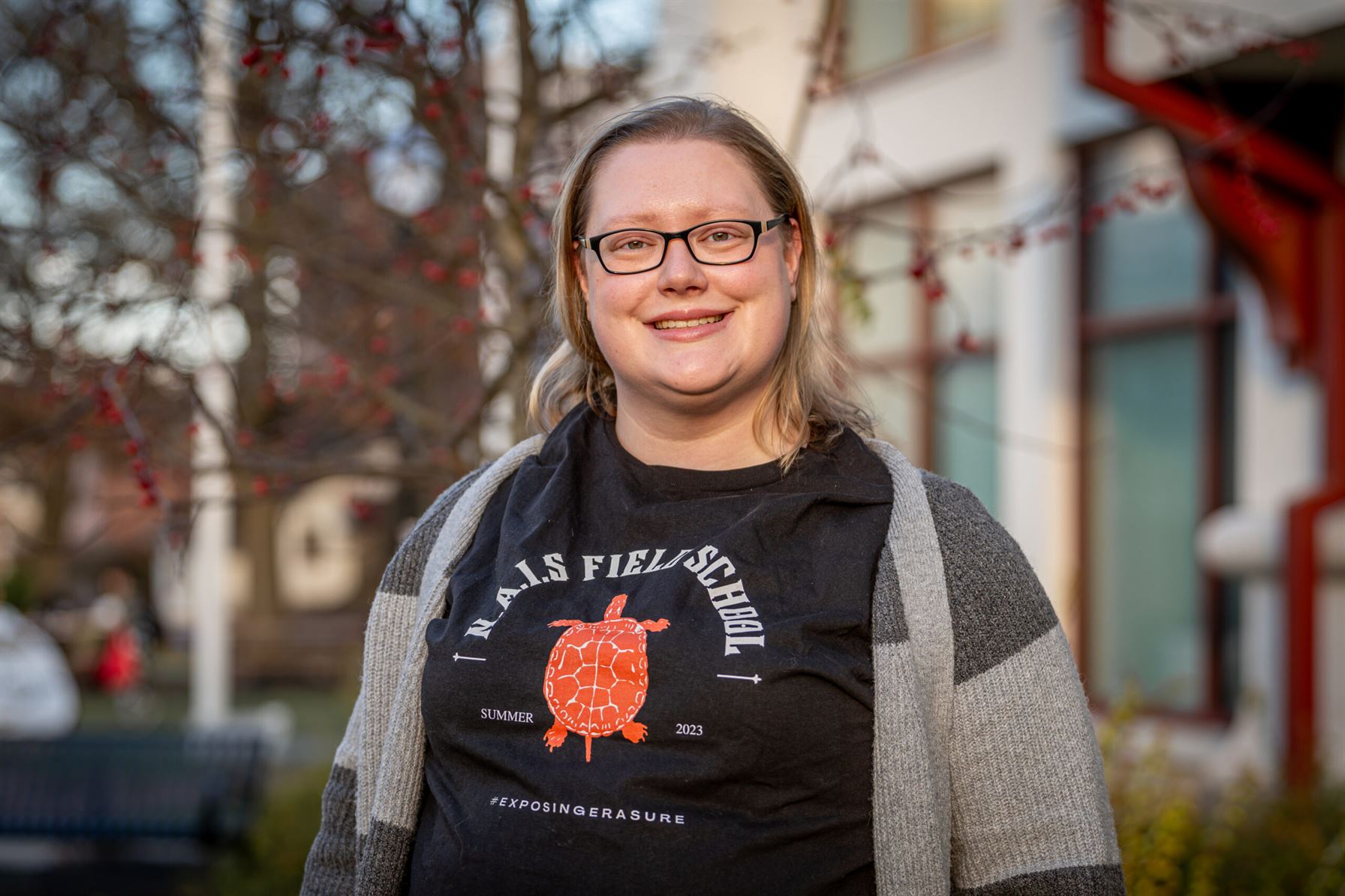
Kate Kilroy, the club's treasurer, encourages anyone with an interest in Indigenous studies to join.
Karsten Englander | The Montclarion
Knowledge of these legislative issues motivated the executive board to work towards the vocality of Indigenous communities. This initiative not only attracts attention but also aligns with the club’s core mission of centering Indigenous voices.
“The ultimate goal is for us to be able to build a platform for Indigenous voices and not for us to be the ones up there speaking as much,” Humenik said.
In explaining the challenges in creating a new student organization, Fornarotto highlighted issues in the need for overall exposure often seen through social media. The club’s official Instagram promotes Indigenous media, authors and music as a common way to entice more members.
National holidays such as the observance of Native American Heritage annually in November provide room for the club’s member growth. Through its curated information, the executive board makes itself available to all individuals interested in learning throughout the semester.
“The only two things you need to join the club are enthusiasm and a willingness to listen and learn,” said Kilroy.
Whether you’re a seasoned advocate or just beginning your exploration of Indigenous studies, you can find your place in a club dedicated to amplifying Indigenous voices and fostering meaningful change.
The Native and Indigenous Studies Club holds its meetings every other Wednesday from 5:30 to 6:30 p.m. at The Coder House located at 10 Normal Ave.

